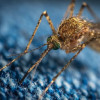
 IJCP Editorial Team
IJCP Editorial Team
Recurring Ear Infections and Nasal Issues May Indicate Higher Risk for Autism, Says Study
A new study published in BMJ Open suggests that children who experience common ear and upper respiratory issues like mouth breathing, snoring, and ear infections might be at a greater risk of being diagnosed with autism or depicting high levels of autistic traits.
The study, which examined data from over 10,000 children, found associations between autism and poor speech abilities, pus or sticky mucus discharge from the ears, and several upper respiratory symptoms. The study authors suggest that the findings could offer clues about the origins of ASD and highlight the need to identify and manage ear, nose, and throat conditions in autistic children. However, the researchers caution that ENT issues are common in childhood and that it is impossible to determine whether these conditions cause the development of autistic traits or are related to another factor.

IJCP Editorial Team
Comprising seasoned professionals and experts from the medical field, the IJCP editorial team is dedicated to delivering timely and accurate content and thriving to provide attention-grabbing information for the readers. What sets them apart are their diverse expertise, spanning academia, research, and clinical practice, and their dedication to upholding the highest standards of quality and integrity. With a wealth of experience and a commitment to excellence, the IJCP editorial team strives to provide valuable perspectives, the latest trends, and in-depth analyses across various medical domains, all in a way that keeps you interested and engaged.














Please login to comment on this article